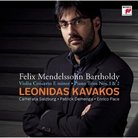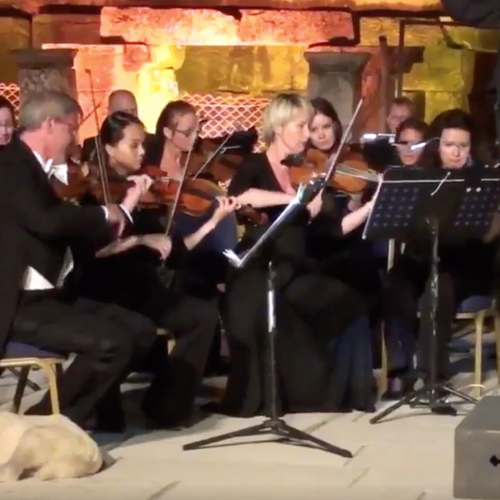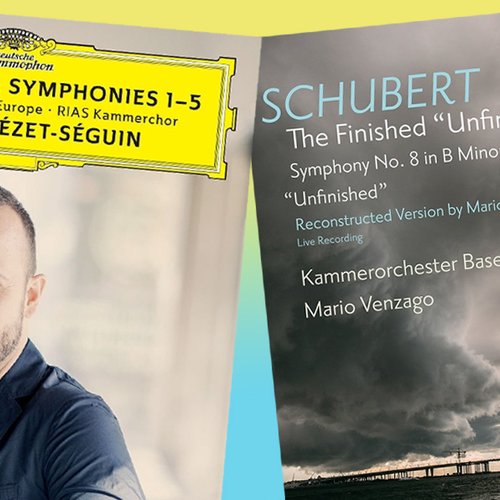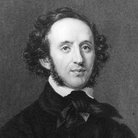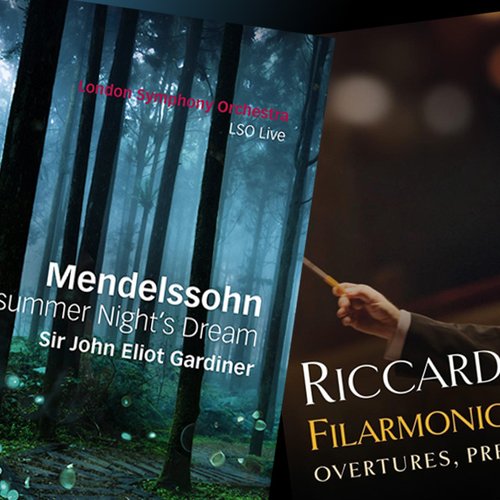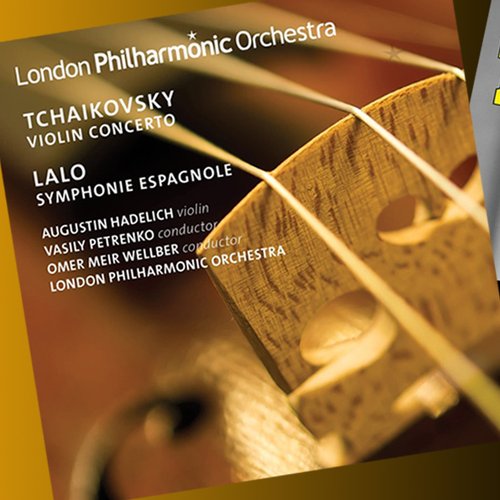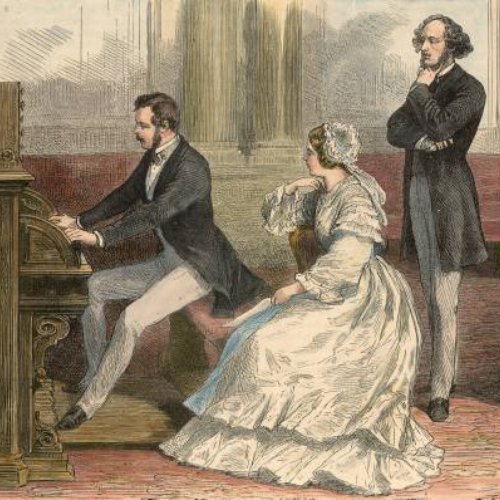Discovering Mendelssohn
Felix Mendelssohn was the most profoundly gifted prodigy-composer of all time. Let us not forget Mozart, Saint-Saëns and Korngold, who also composed with phenomenal skill and assurance during their late teens. But the miracle of Mendelssohn was that by his late teens he was already producing full-blown masterpieces of supreme originality.
And his list of adolescent achievements doesn’t end there: he was a double-prodigy pianist and violinist, an inspired poet, multilingual and a skilled watercolourist. In addition, his grasp of philosophy was such that he gave some of the finest German thinkers of the period a run for their money.
In fact, Mendelssohn excelled at virtually anything that could hold his attention for long enough, although it was music that fired his imagination above all else. No wonder he was widely considered at the time to be Mozart’s Second Coming.
During his tragically short life (he died aged 38), Mendelssohn established himself as the first of the neoclassicists – 100 years before Stravinsky even came up with the idea. Mendelssohn managed to synthesise Bach, Mozart and Beethoven with the virtuoso school of Weber and Hummel to produce a style that sounded tantalisingly Romantic and Classical at the same time.
He was also the first great conductor, and was unique in his regular programming of the great classics of the past alongside the best of emerging new music. Modern concepts of orchestral management and concert structure are still derived from his pioneering example. Mendelssohn had an almost inexhaustible talent, yet he was ultimately destroyed by his constant attempts to balance his gifts with the need for a small number of intimate relationships away from the demands of being a musical celebrity.
Felix Mendelssohn Bartholdy was born into a prosperous, intellectual Jewish family that converted to Protestantism (adding the baptismal name Bartholdy) in order to integrate better into German society. The Mendelssohn Bartholdys played host to many distinguished guests, including the ageing poet Goethe, with whom the young Felix became great friends.
Beethoven saw him play in 1821 and poignantly entered into one of his conversation books: “Mendelssohn – 12 years old, promises much.” By this time the young genius had already produced four operas, 12 string symphonies and a large quantity of chamber and piano music. But despite his prodigious gifts and all the attention lavished upon them, he remained unusually level-headed and close to his friends and family – in particular his gifted sister, Fanny.
Then, aged only 16, Mendelssohn wrote his String Octet, and with it made a creative leap that astonishes today just as it did at the time of composition, in 1825. The first movement is one of the glories of the string repertoire, while the gossamer textures of the innovative Scherzo can be heard resonating in the music of almost every Romantic composer who followed.
As if that wasn’t enough, within the year he had produced his magical overture to A Midsummer Night’s Dream. That a mere adolescent could translate Shakespeare’s poetry into music of such startling originality is one of the most extraordinary creative feats in musical history.
Sensitive intellectuals with caring dispositions often possess highly complex emotional personalities and Mendelssohn was no exception. As he once put it: “The thoughts which are expressed to me by music that I love are not too indefinite to be put into words, but on the contrary, too definite.”
His musical outlook was no less complex. For example, in 1829 he secured Bach’s modern reputation at a single stroke when he conducted the first performance of the St Matthew Passion in almost a century. By contrast, that same year he also produced his first volume of Songs without Words, exquisite solo piano pieces with a decidedly sweet tooth.
Commentators with political axes to grind have been at a loss to know what to make of a composer capable of sheer genius one minute and such innocent pleasantries as the Spring Song the next. The answer is simple: just as surely as Mendelssohn needed quiet times away from the hurly-burly of being an idolised celebrity, so occasionally he retreated into the creative ‘comfort zone’ of his songs and piano miniatures.
Mendelssohn was back on top form the following year with the Fingal’s Cave overture (1830). Returning to a sketch he had made while on a trip to the Hebrides, the composer’s imagination works at full stretch, evoking the spaciousness and deceptive power of the rolling surf with almost tactile precision.
His penchant for travelogues continued in 1833 with his “Italian” Symphony. The high-spirited first movement is superbly offset by the steady tread of a pilgrims’ processional, but most astonishing of all is the relentless fire and drive of the saltarello finale, which unleashes a naked aggression almost unique to the composer’s output.
At the beginning of 1835 Mendelssohn was appointed music director of the Leipzig Gewandhaus Orchestra. In an amazingly short space of time he transformed it from an undistinguished band of near-amateurs into a truly virtuoso corporate body, on vastly increased salaries. The orchestra’s repertoire increased tenfold and included Schubert’s “Great” Symphony, which was premiered by Mendelssohn and the orchestra in March 1839, following Schumann’s discovery of it in Vienna two months earlier. Meanwhile, distinguished soloists from all over Europe queued up to perform with them.
The composer’s happiness was increased by his marriage to Cécile Jeanrenaud in 1837, an extremely pretty girl whose quiet and calm disposition complemented Mendelssohn’s delicate nature to perfection. It was an inspired partnership, one that produced five children, and – to Felix’s great relief – gained the approval of his sister Fanny.
All seemed well until Mendelssohn was seduced away from Leipzig to Berlin in 1841, where various political intrigues and petty jealousies quickly reduced him to a state of exhaustion. In desperation he headed straight for Britain, where he had established a fan-base during the 1830s. He struck up a friendship with the young Queen Victoria and her consort Prince Albert and was soon creatively refreshed and back on track.
Completely disproving the popularly held notion that in later life his creative powers waned, Mendelssohn set to work on an inspired series of miniatures to complement the overture to A Midsummer Night’s Dream that he had composed 16 years previously. Highlights include the light-as-air “Scherzo”, the ravishing “Nocturne” and the rousing “Wedding March”, which has been a fixture at weddings ever since. Now on a roll, Mendelssohn completed his “Scottish” Symphony (1842), dedicated to Queen Victoria.
Two years later, another masterpiece emerged that defines, for many people, what Mendelssohn is all about: the E minor Violin Concerto. Breaking with convention, all three movements follow on from one another seamlessly and the customary solo cadenza appears in the middle rather than the end of the first movement. Throughout the concerto, Mendelssohn’s inspiration doesn’t falter for a second as one memorable idea follows another. Yet although it creates the impression of having been conceived in one magnificent sweep, the concerto was the result of over six years’ painstaking revisions.
Meanwhile, such was his impact in England that in 1846 the 37-year-old Mendelssohn was appointed director of the Birmingham Music Festival and, as its chief attraction, presented the first performance of his new oratorio Elijah. The premiere, on August 26, 1846, was a triumphant success – the 2000 strong audience lost all sense of decorum and, breaking with prevailing custom regarding the performance of religious works, positively roared their approval. Mendelssohn, who was normally painfully self-critical on such occasions, was clearly overwhelmed: “No work of mine ever went so admirably at its first performance, nor was received with such enthusiasm by both the musicians and the audience alike as this oratorio... No fewer than four choruses and four arias were encored!” Such was its impact that for many years Elijah supplanted even Handel’s Messiah as the most popular of all choral works in Britain.
But time was running out. In March 1847, Mendelssohn’s beloved sister Fanny died unexpectedly. This dealt an incalculable blow to the composer, already in poor health and worn out from the pressures of being a celebrity. He never fully recovered and, having poured out his heart as never before in the blazing F minor String Quartet (1847), passed away in the November, following a stroke.
When Queen Victoria heard the news she was overcome with grief and spoke for the composer’s many devoted admirers: “We were horrified, astounded and distressed to read in the papers of the death of Mendelssohn, the greatest musical genius since Mozart and the most amiable man.”



